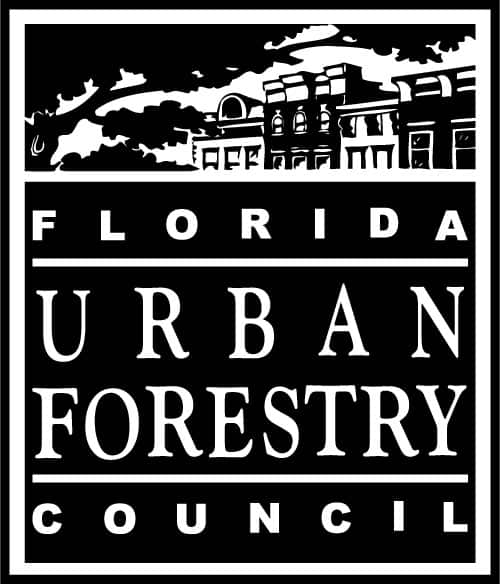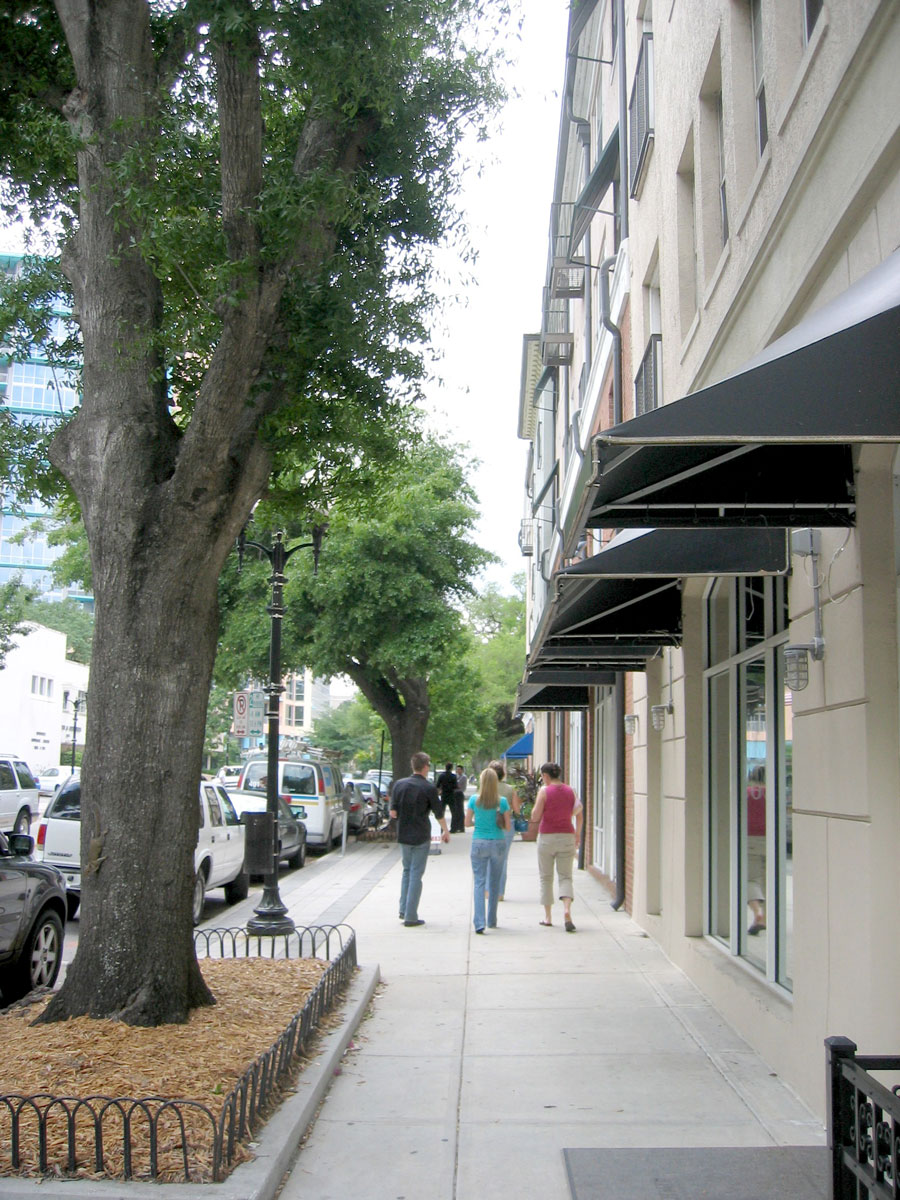Article I - NAME
The name of this non-profit organization shall be the FLORIDA URBAN FORESTRY COUNCIL, hereinafter referred to as the Council.
Article II - PURPOSE
The purpose of the Council shall be to act as a forum, resource, catalyst, liaison, and advocate concerning urban forestry issues within the State of Florida. The Council shall establish its own objectives.
Article III - AFFILIATIONS
The Council may affiliate with other organizations as the Council may deem necessary to achieve the purpose stated in ARTICLE II. The purpose for which the corporation is organized is exclusively charitable, scientific and educational within the meaning of Section 501(c)(3) of the Internal Revenue Code of 1986 or the corresponding provision of any future United States Internal Revenue law. Notwithstanding any other provision of these articles, this organization shall not carry on any activities not permitted to be carried on by an organization exempt from Federal Income Tax under Section 501(c)(3) of the Internal Revenue Code of 1986 or the corresponding provision of any future United States Internal Revenue law.
Article IV - MEMBERSHIP
Section 1. Eligibility for Membership. Membership shall be open to any organization, society, association, business, public agency, group, professional, or citizen having an interest in urban forestry.
Section 2. Membership Categories.
a. Tree Advocate Member – Tree Advocate Membership is granted to those volunteers who are members of a tree board, beautification committee or other urban forestry volunteer group.
b. Supporting Member – Supporting Membership is granted to those individuals, groups or other entities expressing a desire for a strong supportive role in the Council and remitting a special fee to cover a membership period of one year. Membership will be granted for up to five individuals within the group/entity. Supporting Members will receive registration rates for workshops and other educational opportunities at the member rate.
c. Governmental / Non-Profit Agency Member – Governmental/Non-Profit Agency Membership is granted to those individuals, groups or other entities actively working in the profession of urban forestry or any related profession. Membership will be granted for up to five individuals within the agency. Governmental/Non-Profit Agency members will receive registration rates for workshops and other educational opportunities at the member rate.
d. Student Member – Student Membership is granted to anyone actively enrolled as a full-time student and who is considering pursuing a career in urban forestry.
e. Professional Member – Professional Membership is granted to anyone who is actively working in the profession of urban forestry (i.e. commercial arborist, private arborist, municipal arborist, forester, consultant, inspector, landscape architect, horticulturist, etc.) or any related profession.
f. Honorary Member – Honorary membership is a permanent membership category and is reserved for an individual who has demonstrated an unusual capability and interest in urban forestry and who, in the opinion of the Executive Committee, is deserving of such recognition. This shall include all Past Presidents of the Council.
Section 3. Membership Dues. Unless otherwise determined by the Executive Committee of the Council, annual dues shall be as follows:
a. Tree Advocate Member – Annual dues are in the amount of $20.00.
b. Supporting Member – Annual dues are in the amount of $200.00.
c. Governmental/Non-Profit Agency Member – Annual dues are in the amount of $100.00.
d. Student Member – Annual dues are in the amount of $10.00.
e. Professional Member – Annual dues are in the amount of $25.00.
f. Honorary Member – There are no dues for an Honorary Member.
All membership dues are effective for the calendar year period of January 1 through December 31 regardless of when dues are paid.
Section 4. Member Participation. Members may be appointed to serve on committees or elected to the Executive Committee and will be welcome to attend all meetings of the Council and to support and participate in achieving the objective of the Council.
Article V - EXECUTIVE COMMITTEE
Section 1. Membership. The governing body of the Council shall be the Executive Committee and shall be composed of up to twenty-six voting members, as follows:
- One member from the Cooperative Extension Service.
- One member who is employed as a City Arborist.
- One member who is employed as a Private Arborist.
- One member who is employed as a Utility Forester.
- One member from the Florida League of Cities.
- One member from a tree advocacy group, conservation organization or garden club.
- One member from the Florida Nursery, Growers and Landscape Association.
- One member from the Florida Recreation and Park Association.
One member from the American Society of Landscape Architects, Florida Chapter. - One member from the staff of the Florida Department of Transportation, representing the Florida Highway Beautification Council.
- One member from the Florida Chapter ISA.
- One member from the Society of American Foresters.
- Five members at large.
- Nine advisory positions.
Section 2. Initial Appointment of Executive Committee Members. Members of the Executive Committee shall serve terms of three years, except that those initially appointed to the Executive Committee shall serve staggered terms of one, two or three years as follows: Five members shall serve one-year terms, five members shall serve two-year terms, and five members shall serve three-year terms.
Section 3. Election of Executive Committee Members. At least sixty days prior to the end of the calendar year, the President shall appoint a three-member committee to nominate candidates for election to the Executive Committee for three-year terms. Terms shall begin at the start of the following fiscal year.
Section 4. Advisory Members. The President may appoint a maximum of six Advisory Members to the Executive Committee for terms not to exceed one year. Advisory Members may be reappointed by succeeding presidents for an unlimited number of terms. Three advisory positions shall be assigned to Executive Officers (Past President, President, President-Elect, Vice President) as needed to fulfill terms of office.
Section 5. Vacancies. An Executive Committee Member may resign in writing to the President. Vacancies among the Executive Committee shall be filled by appointment by the President and ratified by a majority vote of the Executive Committee Members. Any person so appointed shall fulfill the term of the position filled.
Section 6. Any member of the Executive Committee may be removed from office for just cause, conduct unbecoming of the office, or upon missing two (2) consecutive meetings without just cause and/or failure to notify the President or Executive Director. Removal would require a recommendation to the Executive Committee and a majority vote approving such action by the Executive Committee. Any vacancies occurring as a result of this Section will be filled in accordance with Article V, Section 5.
Article VI - MEETINGS
Section 1. Council Meetings. The Council shall meet at least once each year.
Section 2. Executive Committee Meetings. The Executive Committee shall meet at least six times each year. The Executive Committee may meet more frequently if deemed necessary. A majority of Executive Committee Members present at a scheduled meeting shall constitute a quorum. Executive Committee meetings may be held either at a common location or electronically, such as by conference telephone call, as long as all Executive Committee Members in attendance are not restricted from full discourse and participation by the electronic medium. Executive Committee members must be present to vote as there will be no vote by proxy. The Executive Director shall distribute to the Executive Committee an agenda at least one week in advance of each meeting.
Section 3. Consent Without Meeting. Any action permitted or required by these Bylaws to be taken by the Executive Committee at a meeting, may be taken by consent in absentia without a meeting, if consent is obtained from the Executive Committee Members in writing, by phone, by e-mail or FAX to the Secretary or Executive Director.
Section 4. Resolutions to be adopted by consent in absentia cannot be amended by the Executive Committee voting in absentia. Bylaws and Articles of Incorporation cannot be amended by the Council voting in absentia. Resolutions to be adopted in absentia do not require seconding and may be made by an Executive Committee Member, including the President. A vote is complete as soon as the minimum number of votes to pass or fail a resolution have been cast.
Section 5. Ratification of Actions. All resolutions that were passed by the Council in an electronic meeting and by consent in absentia shall be sent by first class mail or electronic media to all Executive Committee Members by the Secretary or Executive Director within thirty days of the completion of the vote. The Secretary or Executive Director shall indicate how each Executive Committee Member voted.
Article VII - OFFICERS
Section 1. Council Officers. The Council Officers shall be the President, President-Elect, Vice President, Secretary, Treasurer, and Immediate Past President. The President-Elect, in the absence of the President, shall preside at all meetings of the Council and Executive Committee. The President shall vote only in the event of a tie.
Section 2. Terms of Office. The President, President-Elect, Vice President, Secretary, and Treasurer shall each serve terms of one year. If the President successfully runs for a second term of office, the President-Elect and Vice President may have the option to serve a second term of office. No officer shall be elected to more than two (2) consecutive full terms.
Section 3. Election of Executive Officers. At least sixty days prior to the end of the calendar year, the President shall appoint a three-member committee to nominate candidates for election of Executive Officers. The nominating committee should be chaired by the Immediate Past President or other appointee as necessary. Terms shall begin at the start of the following fiscal year.
Section 4. Election of President-Elect, Vice President, Secretary, and Treasurer. The President-Elect, Vice President, Secretary, and Treasurer shall be elected from the Executive Committee by a majority vote of that committee. Candidates for President-Elect should have a minimum of two years remaining in their current term of office. In the event that the candidate does not have the appropriate time left in his/her term and is duly elected to serve as President, President-Elect or Vice President, the President may appoint the candidate to an advisory position. This position shall automatically be reappointed on an annual basis until the officer(s) have completed their terms of service to the Council unless the candidate obtains appointment/reappointment from one of the member organizations or is elected to a position.
Section 5. Eligibility for Office. Any member of FUFC in good standing for at least one year prior to the date of election or appointment to the Executive Committee shall be eligible for any office. A “member in good standing” is defined as a member meeting all requirements for membership as defined herein.
Section 6. Duties of Officers.
President – The President shall be directly responsible for the supervision and guidance of the affairs of this Council and shall preside over all meetings of FUFC. The President shall enforce the Bylaws of this Council and perform other duties that would be recognized as being part of the office.
President-Elect – The President-Elect will preside over all meetings in the absence of the President. This position requires a minimum of one year’s experience with the Executive Committee to be eligible for a position as President-Elect. Due to the nature of this office, the President-Elect shall become familiar with the policies, procedures and business operations of the Council in preparation to fill the role of President. The President-Elect should serve, when practical, as chairperson on one of the following standing committees: Membership, Awards, Marketing, and/or Education.
Vice President – The Vice President shall preside in the absence of the President-Elect and in the absence of the President at all FUFC functions. The Vice President should serve, when practical, as chairperson of one of the following standing committees: Membership, Awards, Marketing, and/or Education.
Secretary – The Secretary shall keep and maintain an accurate record of the proceedings of all official meetings and the names of all appointed committees and their functions. The Secretary shall also maintain a record of policies and issues of the Executive Committee and Officers.
Treasurer – The Executive Director shall be the custodian of all financial matters of the Council. The Treasurer shall be responsible for auditing all records of all collections and expenditures from the Council treasury and reporting on same at all FUFC Executive Committee meetings. The Treasurer will also investigate and verify that all tax laws and procedures are duly adhered to and that the Council is established in its rightful and correct position, as so stated in ARTICLE I.
Immediate Past President – The Immediate Past President should serve as chairperson of the Ad Hoc Nominating Committee.
Section 7. Records. Each officer and committee chairperson shall upon the expiration of his/her term of office and upon the selection of a successor, deliver to the successor the records of his/her past office or position.
Section 8. Executive Director. The Council may employ or contract an Executive Director to provide organizational management and secure supplemental funding for Council activities. The Executive Director is authorized to expend up to and including $2,500.00 of Council funds in fulfilling the assigned duties of the position. The contract for employment may be reviewed and/or renewed on an annual basis by a majority vote of the Executive Committee.
Article VIII - COMPENSATION OF MEMBERS
All members of the Council and Executive Committee shall serve on a voluntary basis and receive no financial reimbursement for their time. They may, however, be reimbursed for associated travel expenses, pending availability of funds.
Article IX - COMMITTEES
Section 1. Standing Committees.
a. Executive Committee.
b. Awards Committee.
c. Marketing Committee.
d. Membership.
e. Education.
Section 2. Ad Hoc Committees. The President, with approval of the Executive Committee, may appoint or discontinue ad hoc committees as it deems necessary to achieve the objective of the Council.
Article X - FISCAL YEAR
Section 1. Fiscal Year. The fiscal year of the Council shall be from January 1st to December 31st of each year.
Section 2. Revenue. The revenue of the Council shall be from membership dues, donations and any other source of revenue approved by the Council.
Article XI - RULES OF ORDER
Parliamentary procedures as defined in the current edition of Roberts Rules of Order shall govern all Council Meetings and all meetings of the Executive Committee.
Article XII - DISSOLUTION OF ASSETS
Section 1. Dissolution. The Council may be dissolved by a majority vote of the Executive Committee Members and ratified by a 2/3 vote of the members present at the annual meeting or special meeting of members duly scheduled, provided written notice of the proposed dissolution has been mailed at least thirty days in advance.
Section 2. Assets. Upon dissolution of the Council, the assets remaining after payment of all debts and liabilities shall be donated to one or more non-profit tax-exempt organizations as described in Section 501(c)(3) of the Internal Revenue Code. By a vote of the Executive Committee Members, assets shall be donated to properly qualified organizations that are dedicated to acting as forum and resource for Urban Forestry issues in Florida.
Article XIII - AMENDMENTS
These Bylaws may be amended by a majority affirmative vote of Council Members casting votes. A ballot with the proposed amendment shall be sent by mail to all members for a vote. Ballots may be submitted to the Executive Director by mail, facsimile, or electronically. Ballot results will be published on the Council’s website and in the first published newsletter after the results are tabulated.
(Amended April 8, 1992)
(Amended August 31, 1994)
(Amended September 6, 1995)
(Amended September 26, 1997)
(Amended August 21, 1998)
(Amended February 4, 2000)
(Amended December 17, 2003)
(Amended September 29, 2006)
(Amended October 5, 2007)
(Amended October 7, 2011)



